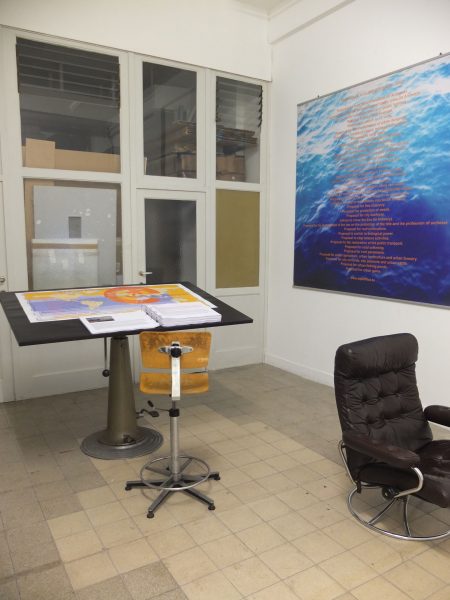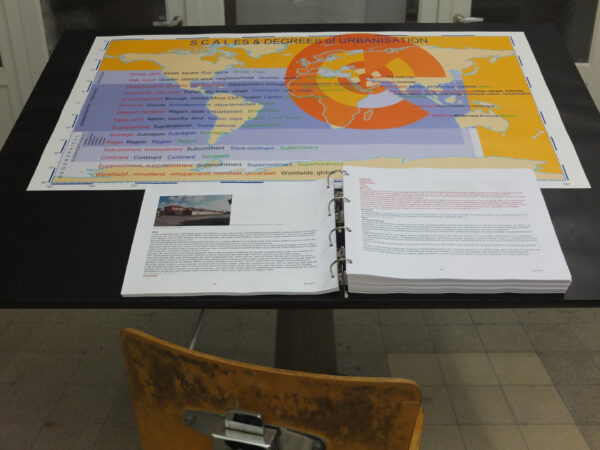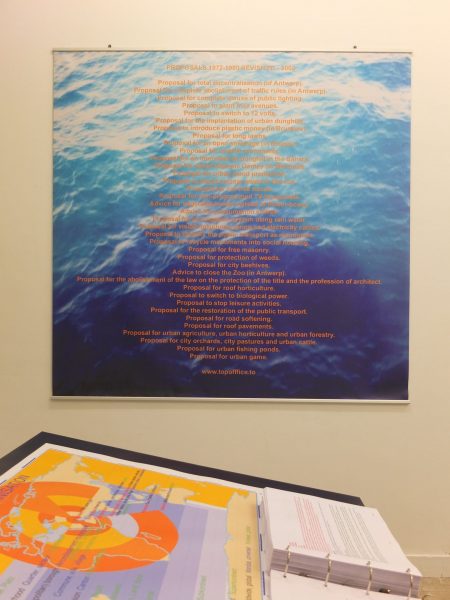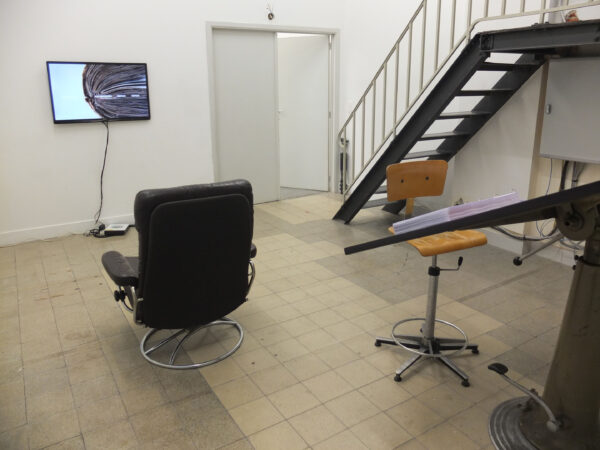OPENING
FRIDAY 24.05.13 AT 7PM
EXHIBITION
25.05.13 – 02.06.13
The Tribune collage book – the subject of this DVD publication – is a sort of ‘container’ that the architect Luc Deleu made between 1971 and 1978 when he was just starting out. In addition to a look at world history and the current affairs of the first half of the seventies, the book is full of references to works that took shape in that period or to projects that were only carried out years later. Tribune is also the expression of the desire for global mobility and the mobile architecture that goes with it – a desire which at the time could not be satisfied for practical reasons, and which in Tribune were sublimated in the form of collages, illustrations, sketches and projects. One could describe this desire as that of a young artist hoping at last to launch into his ‘artistic journey’.
Tribune has exactly 300 pages and is almost 10 centimetres thick. Like the cover, the pages are without exception covered with cuttings, photos, advertisements, sketches, impresses of stamps, notes, drawings, logos, cartoons, advertising leaflets, police tickets and world maps. It is this combination of history, art history and the individual artistic project that makes this early work and diary of Luc Deleu’s so challenging.`
And in fact Luc Deleu wrote on the penultimate page: ‘This book was created with the idea of one day filming it and/or recording it on a V.C.R. as it is leafed through (being read, in other words).’ This challenge was taken up for this DVD, 36 years later. In a conversation with the former journalist Jef Lambrecht, Deleu leafs through the collage book from back to front, so that the viewer, at the same pace as the two speakers, can follow their visual journey through the book. Their conversation is not only on artistic topics, but is also about Luc Deleu’s view of the world and his social commitment, his ambitions and frustrations. For 106 minutes the viewer is drawn into Deleu’s oeuvre and outlook in the light of his critical but also humorous attitude.



